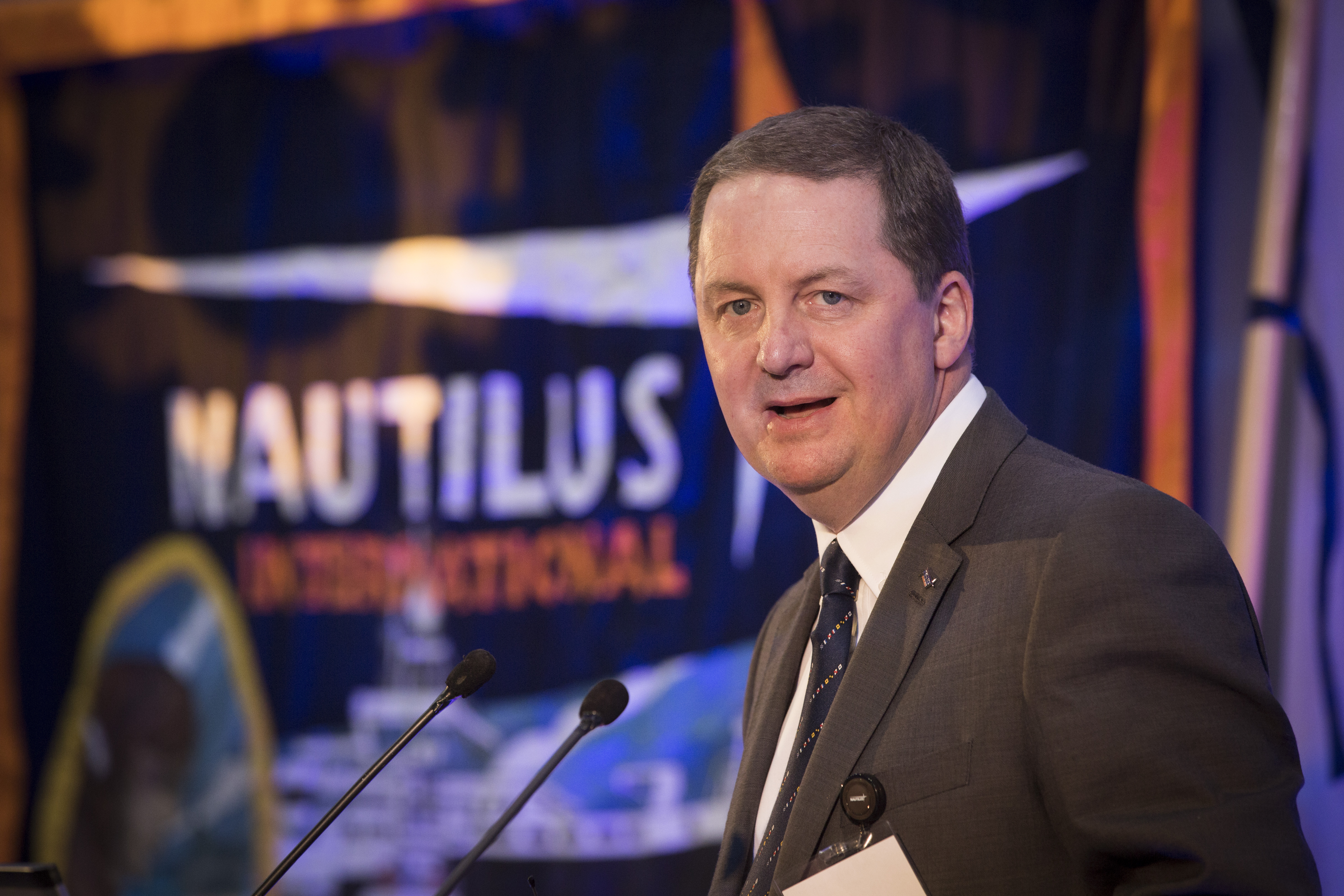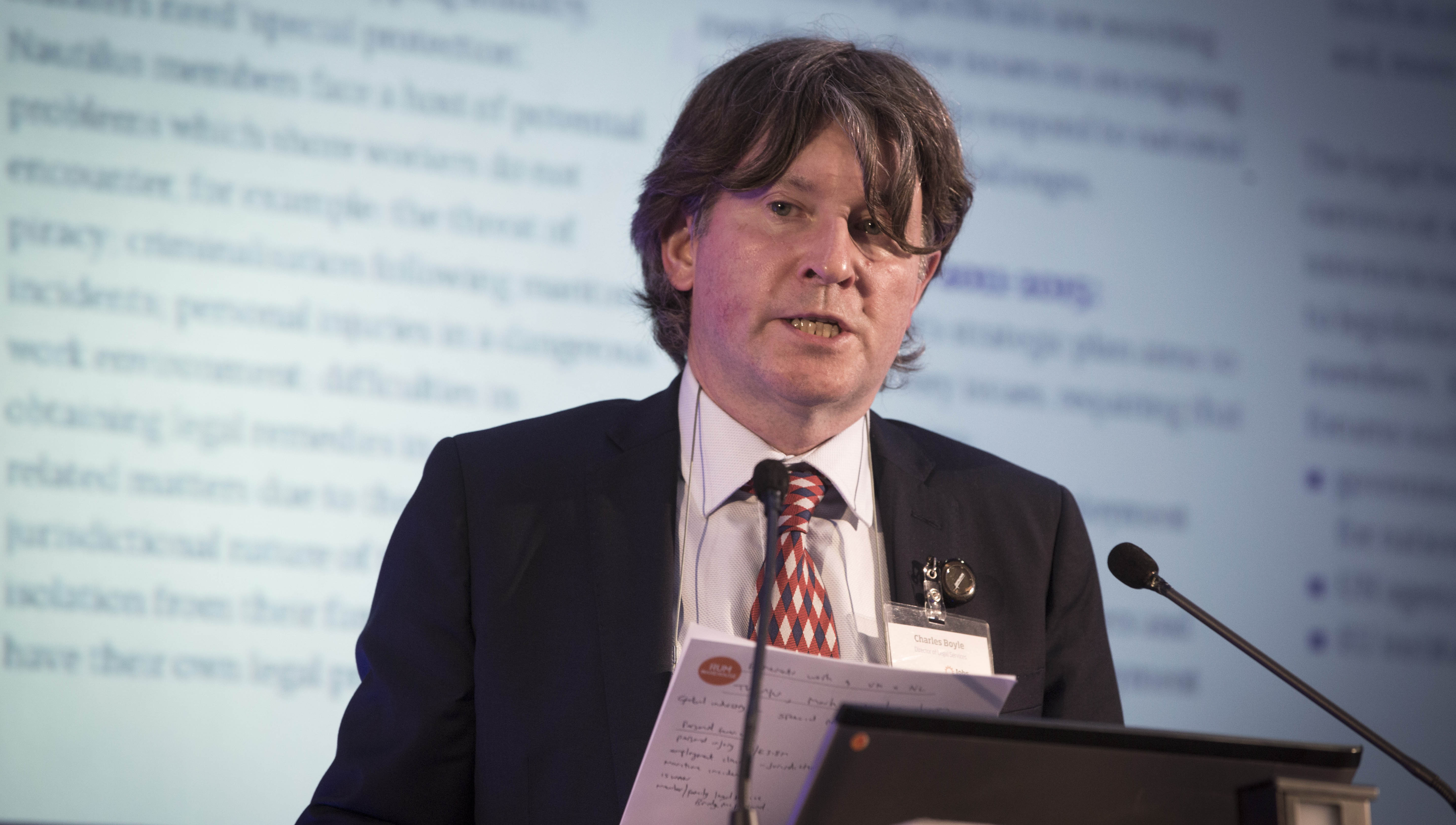- Topics
- Campaigning
- Careers
- Colleges
- Community
- Education and training
- Environment
- Equality
- Federation
- General secretary message
- Government
- Health and safety
- History
- Industrial
- International
- Law
- Members at work
- Nautilus news
- Nautilus partnerships
- Netherlands
- Open days
- Opinion
- Organising
- Podcasts from Nautilus
- Sponsored content
- Switzerland
- Technology
- Ukraine
- United Kingdom
- Welfare

Many governments have been hiding behind declarations of exceptional circumstances to avoid engaging with the crew change crisis. But maritime law experts stress that the Maritime Labour Convention is still very much in force, and some seafarers are illegally being denied their rights to relief and repatriation. Helen Kelly reports
At the end of June, news that the Panama Ship Registry would allow seafarers to stay onboard for up to 17 months without a break sent shock waves through the industry and left many crew questioning their protections under international regulations.
The world's largest flag state claimed the move was necessary where crew change was not possible due to the pandemic. This was met with howls of protest from seafarer representatives who were already warning that fatigued crews –working for months after they were supposed to return home – posed a threat to shipping safety and the environment. Some even accused Panama of using the pandemic for its own gain at the expense of exhausted crew.
'If Panama can state with such authority that seafarers at the end of this latest extension "shall be repatriated", then why not enforce that now?,' Nautilus general secretary Mark Dickinson said.
'Some seafarers have already been onboard for 15 months. This is a kick in the teeth to them and frankly inhumane. It pulls the rug from under everyone working to get crew changes done. It lets those countries who are dragging their feet off the hook.'

Mr Dickinson called for all Panama flagged ships to be targeted for inspection by Port State Control and detained for breaching the Maritime Labour Convention (MLC).
The registry has since back-tracked, removing the 17 month stipulation. But it has left seafarers feeling once again abandoned by the very structures that are meant to support them.
One third officer told Nautilus: 'It seems as soon as the sh*t hits the fan, maritime regulations are just thrown out the window – which completely defeats the point of having them.'
How did we get here?
It is a common belief that the Maritime Labour Convention (MLC) 2006 legally restricts Seafarer Employment Agreements (SEAs) to a maximum of 12 months. This is not quite correct.
The convention actually provides for unlimited employment contracts, with negotiable terms and conditions such as enhanced pay or annual leave. It is a 'living document' that is constantly reviewed by the Special Tripartite Committee (STC) – consisting of seafarer, shipowner and government representatives.
Crucially for crew changes, the MLC does provide, under Regulation 2.5 and Standard A 2.4, the right to repatriation after a maximum period of onboard service of less than 12 months, and the right to paid annual leave.
When the pandemic was first declared, national governments began closing borders and travel restrictions were imposed. It was widely accepted that the global maritime industry would simply have to put up with this, whatever the consequences for crews, because it was a 'Force Majeure' situation – defined as acts, events or circumstances beyond control.
As it grew increasingly difficult to get seafarers off ships and fly them home, the International Transport Workers' Federation (ITF) twice reluctantly agreed to 30-day periods of onboard service extensions under the International Bargaining Forum (IBF) Framework Agreement.
This would at least allow for seafarers to retain the right to wages and accrued paid annual leave whilst stuck onboard. The extensions permitted seafarers who had worked 11 months to stay onboard with full pay and conditions up to a maximum of 13 months. Ideally, a new one-month SEA should be agreed for each extension.
Seafarers must have genuinely consented to staying onboard and/or extending their contracts if circumstances meant that they could not be repatriated or take annual leave, and all benefits and other terms must remain the same.
When asked for a third time, the ITF refused another extension. Instead, governments were given an extra 30 days, up to 15 June 2020, to implement crew changes in line with industry protocols circulated by the International Maritime Organization (IMO) in mid-May.
That should have meant governments finally started to allow crew changes. But in many cases borders remained closed, and a growing number of seafarers – now thought to be as many as 200,000 – remained stuck at sea, to their increasing distress.
We have to be careful that seafarers are not subject to forms of abuse because they are in this captive environment Dr Cleopatra Doumbia-Henry, head of the World Maritime University
A captive environment
Dr Cleopatra Doumbia-Henry, the head of the World Maritime University, is known as the Mother of the MLC for her work to develop this 'seafarers' bill of rights' in the early 2000s. She has warned that, despite the exceptional circumstances of the pandemic, tours of duty must be limited to protect the mental health and wellbeing of seafarers.
'We have to be careful that seafarers are not subject to forms of abuse because they are in this captive environment,' she warned. 'This has been really traumatic and a very dramatic set of circumstances in which no one should find themselves.'
Dr Doumbia-Henry urged the maritime industry to continue to fight for crew changes. 'We have to champion the cause for seafarers because they are onboard the ship. They are powerless, waiting on us to help them get back.'
What now?
As time has passed and the pandemic has begun to wane in many parts of the world, border restrictions are gradually easing. Tourist travel has cautiously restarted in some places, and the conditions for repatriation and transfer of seafarers have improved. It is becoming less viable to claim Force Majeure as an excuse for not making crew changes.

'It is important to make the distinction between what is difficult to do, and what is impossible to do when it comes to Force Majeure,' Nautilus director of legal Charles Boyle explains. 'If it is possible, however hard, to repatriate crew, then tough! You have to do it under the MLC. Governments signed up to these international conventions. Industry must comply with them.'
On 9 July, the UK hosted an international video-conference where 13 governments adopted a statement pledging to urgently take forward a range of actions to 'avert the global crisis that is unfolding at sea' for the seafarers who remain trapped working on ships.
The governments pledged to designate seafarers as 'key workers', to provide visa waivers, and to exempt them from quarantine.
The event was attended by Australia, Denmark, France, Germany, Greece, Indonesia, Netherlands, Norway, Philippines, Saudi Arabia, Singapore, South Africa, United Arab Emirates and United States of America.

ITF general secretary Stephen Cotton, who attended the online event, said: 'After months of this crew change crisis getting worse, governments must do their bit. That means that port states where ships dock, flag states where ships are registered, transit hubs with airports, and the home countries of seafarers all need to make visa, quarantine and border exceptions for seafarers now – not tomorrow, not next week.'
Change is slowly starting to happen. From 1 July, the Australian Maritime Safety Authority (AMSA) said it would no longer allow seafarers to serve onboard beyond 13 months without a break. Vessels can be detained at Australian ports if a seafarer has continuously served onboard beyond that time.
'What we're seeing now is a tipping point in terms of facilitating crew changes,' Mr Boyle says. 'It will be harder for lone wolves to hold out. Attention will be drawn to non-compliant countries, pressure will be applied, and it will become harder and harder to rely on the excuse of Force Majeure.
'Basically, it comes down to: will you enforce MLC at the end of the day or won't you?'
Tags
More articles
Panama defies seafarers rights
Real life: Stuck onboard during a global pandemic
IMO urges immediate access to shoreside medical care
New guidance issued to help ensure that seafarers who become ill at sea can get the treatment they need ashore during the Covid-19 pandemic.
Australia cracks down on Covid-19 tours of duty extensions
Australia is enforcing a maximum continuous period that a seafarer can serve onboard a vessel without taking leave, which could see ships prevented from departing Australian ports if crew have spent too long at sea.
UK MCA to begin 'phased return' to vessel inspections
The resumption of routine vessel inspections is a partial relaxing of the restrictions put in place in March this year, in response to the Covid-19 pandemic.
High-level ministerial meeting calls for international protocols on crew changes
The UK is leading a coalition of 15 countries calling for the creation of international protocols to facilitate shipping operations and the immediate safe resumption of seafarer crew changes globally.
